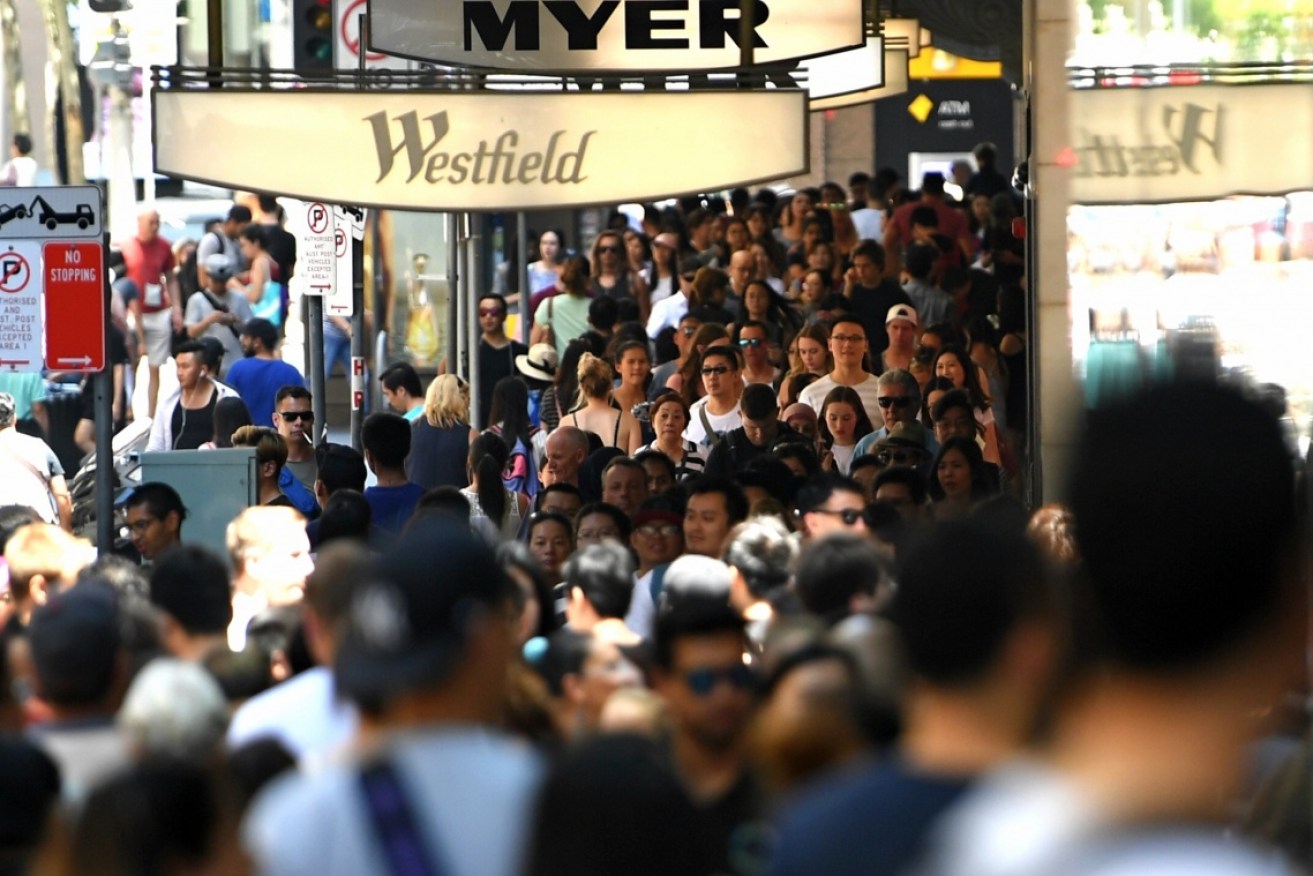Retail sales disappoint in March as consumers shut their wallets again

The retail sales figures would not be welcome by the RBA. Photo: AAP
Australian retailers are continuing to suffer at the hands of reluctant shoppers, with another disappointing month of sales in March.
In seasonally adjusted terms, overall retail sales exhibited no growth over the month.
The result was weaker than an already weak market forecast for 0.2 per cent growth, a slowdown from 0.6 per cent growth in February.
Only food sales recorded a significant rise.
Household spending, clothing and accessories and department stores all went backwards.
While department stores continue to struggle against online retailers, heavy discounting over the month did not help their cause either.
One of the few bright lights in retailing over recent years, the cafe, restaurant and takeaway sector, experienced one of the sharpest declines.
“The moderation in cafes and restaurants in the last year may signal some accumulated pressure on the more discretionary spending areas, due to household balance sheet constraints,” JP Morgan economist Ben Jarman said.
Quarterly sales volumes released by the Australian Bureau of Statistics at the same time as the monthly data was also soft, up just 0.2 per cent since the start of the year.
The consensus view is household consumption will now only make a marginal positive contribution to first quarter GDP.
Sales likely to soften more: RBC
RBC’s Su-Lin Ong said it appeared consumers had again shut their wallets, and it was a trend that may get worse for retailers.
“While the underlying retail sales trend has firmed a little recently, courtesy of a reasonable February and iPhone-induced jump in November, the monthly trend remains patchy and has been for much of the last 12 months,” Ms Ong said.
Ms Ong said the softness in first quarter sales may reflect the moderation in employment generation, ongoing tepid wages growth, and an easing housing market.
“Some of these factors will likely continue as the year unfolds,” she said.
“We remain cautious on the outlook for household consumption and despite our expectation for near-trend GDP in 2018 and 2019, the composition of growth is likely to be poor, with weaker household consumption and a continued and rising drag on activity from residential construction.”
RBA unlikely to be happy
Ms Ong added the Reserve Bank would most likely be disappointed with the figures given it had suggested “consumption growth remained solid” in its recent statement on monetary policy.
“Indeed, the data add slightly to the case, bolstered by the softer labour market data and dovish shift in global central bank rhetoric recently, for it to stay on hold for even longer than our base case, which incorporates two hikes in the first half of 2019,” she said.
There was little reaction on the markets with traders holding fire ahead of the federal budget with hopes for tax cuts being announced to help ease the squeeze on consumers.
Around the nation, retailers in the ACT fared the best with sales up 1.5 per cent over the month, where everywhere else gains were at best marginal, at worst negative.








